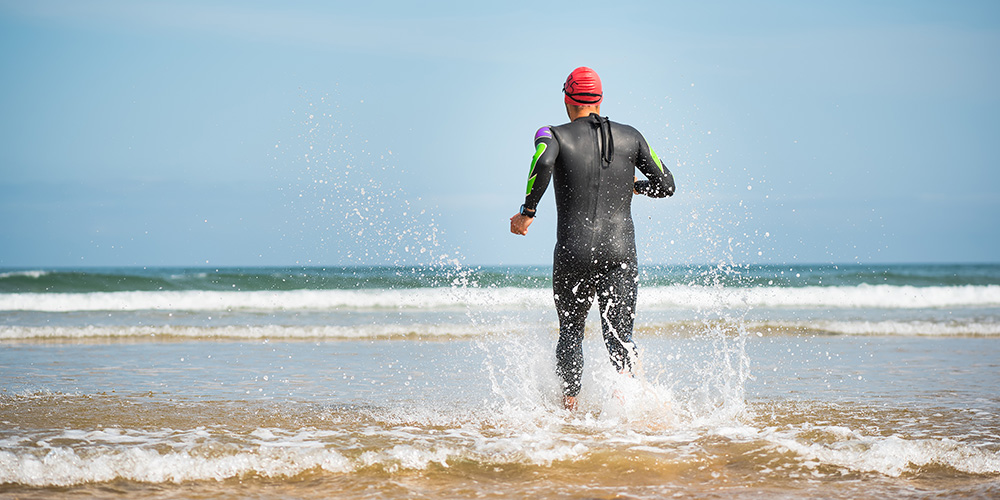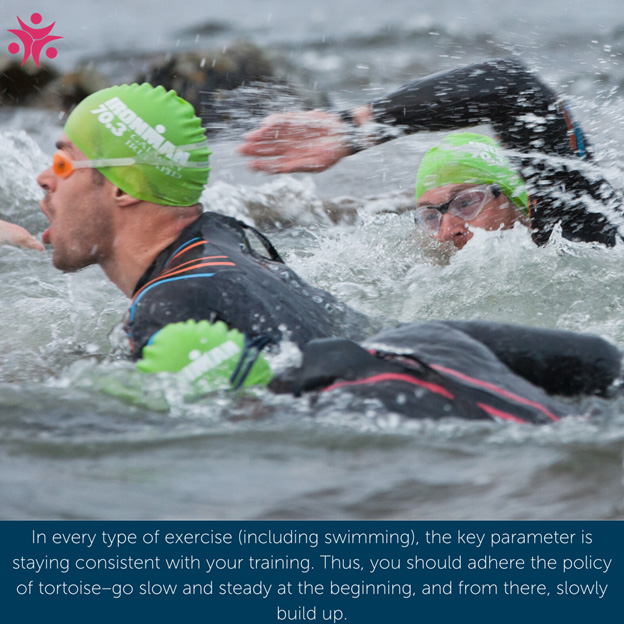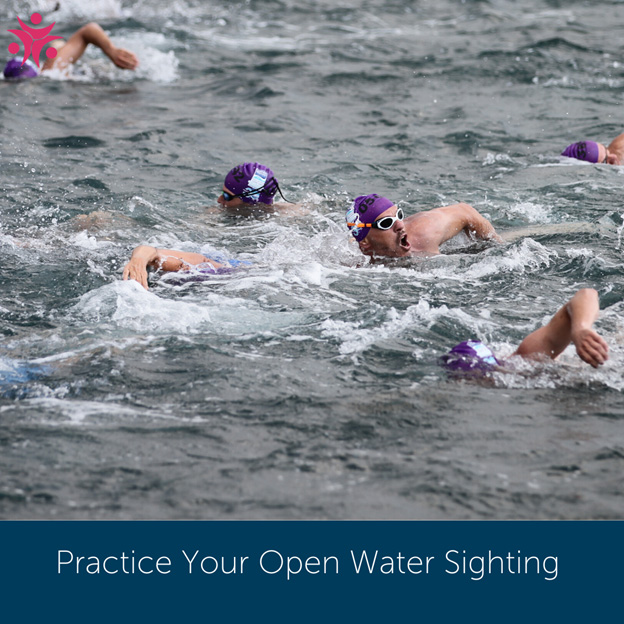
Open Water Swimming Tips You Need To Learn Now
Monday, November 23, 2020
Whether you're training for a triathlon or you simply love to swim out in open waters, this type of swimming is extremely different than what you might be used to in the pool. Varying weather conditions, murky water, and the physically demanding challenges of open water swimming calls for a whole new way of training.
Here, we're going over the 5 best open water swimming tips to help you train more effectively and smash your open water swims.
Build Endurance
In open water races, you're most likely in it for a long haul. Sprinting is more of a pool swimming sport so when you're training for open water swims, endurance is key.
Not to mention, open waters have a tendency to be rough and tough. You should expect to be able to swim non-stop for at least three times the open water distance you're training for in the pool. A 5K in the ocean will feel a lot more challenging than a 5K in the pool, so train accordingly.
A great way to build swimming stamina is by doing interval training. Go back and forth between bursts of intense swimming at close to your maximum effort before taking a break doing less than half of your maximum threshold (but keep going!).
After a while, your cardio stamina will improve as your heart gets better and faster at recovering.

Build Your Strength & Endurance Away From The Pool
To really optimise and increase your endurance, you really need to start to look at alternative methods of training to adopt away from the pool.
Open water swimmers need to follow a program of exercise and movement patterns that replicate their actions and movements in the water.
Below video is great start to get the ball rolling if you've never hit the gym or done any other forms of exercise outside swimming.
Work On Alternate Breathing
Most pool swimmers have a preferred side when coming up for air. However, this can lead to problems when it comes to open water swimming. Wind, waves, and other natural factors can make breathing on your preferred side unpleasant or nearly impossible. That's why it's imperative to get used to breathing on both sides.
Alternate breathing might not seem like much of a challenge, but skipping this practice can be surprisingly uncomfortable. It could take a while to get used to alternate breathing so the sooner you give it a go, the better.
One way to practice alternate breathing is by switching sides at irregular intervals. For example, take three breaths in a row from your right side before taking five breaths on the left. Then do nine on the right and four more on the left. You might also try holding your breath for a few strokes.
Don't Rely on the Wall
When training for open water swims, it's hard to avoid some pool training sessions. And while the best training is obviously going to take place in the natural water you'll be racing in, pool training can still be beneficial.
However, it's incredibly important not the rely on the walls of the pool. In open water swimming, there are no walls to push off of which means your energy expenditure only increases. That's where the first tip comes in handy. You'll need that endurance when you don't have help from the wall.
Other training exercises that are good for reducing your reliance on pool walls are treading water, turning without the wall, and switching your strokes. Which leads to our next point.
Switch Up Your Stroke Style
Open water conditions can change without warning and varying conditions call for varying strokes. For example, long, deep arm pulls are great for speed and distance, but if you're facing choppy conditions, you might need to adjust to more shallow, short strokes to stay afloat.
Not only will switching up your strokes help when open water conditions change, but it can also help alleviate certain muscles in your arms that are feeling fatigued from the repetition.
Practice Sighting
When you're open water swimming, you don't have the luxury of lane lines or flag markers. You'll need to practice open water sighting so that you're aware of where you are and to ensure you're swimming in the right direction.
Instead of only taking in your side-to-side surroundings as you breathe, you'll also need to practice looking forward. It's best to do so on an exhale to avoid the breathing in water.
In lakes and calm bodies of open water, only lift your head slightly above the water while sighting. However, if you're swimming in the ocean, you'll need to feel out the swell and get used to sighting at the tops of waves where you can get a better view.

Other quick tips regarding sighting:
- Press down with your hand and arm as you prepare to sight to give your body extra height
- Give an extra hard kick while you're sighting to maintain a forward speed
- Arch your back while sighting to minimise drag
- Sight three times in a row, first to locate the buoy, a second time to adjust, and a third to confirm. Then swim straight for 30 seconds before repeating.
Honourable Mentions
There's a lot to consider when training for open water swims and we've included a few tips that didn't make the list but are still important:
- Skip the goggles for some of your workouts to prepare for potentially murky water
- Take cold showers to prepare for chilly lakes and oceans
- Learn to relax even in stressful open water conditions with mindful breathing techniques
- Use cross-training to prepare your body for the challenges of open water swimming
Our physiotherapists are trained to not only treat injuries and illness that cause physical impairments, but they're also able to help you create a curated training schedule for injury prevention, strength, and more.
If you're training for a triathlon or an upcoming open water swim, seeing a physiotherapist can help to make sure you're on the right track with your training as well as offering helpful tips for recovery and proper technique. So, whether you're looking for exercises to do outside of the pool or stretches to improve your wingspan, an exercise physiotherapist can help.
With convenient Australian clinic locations and mobile services that come to you, Physio Inq is here to help. Give us a call or book an appointment online and get ready to hit the open water!

